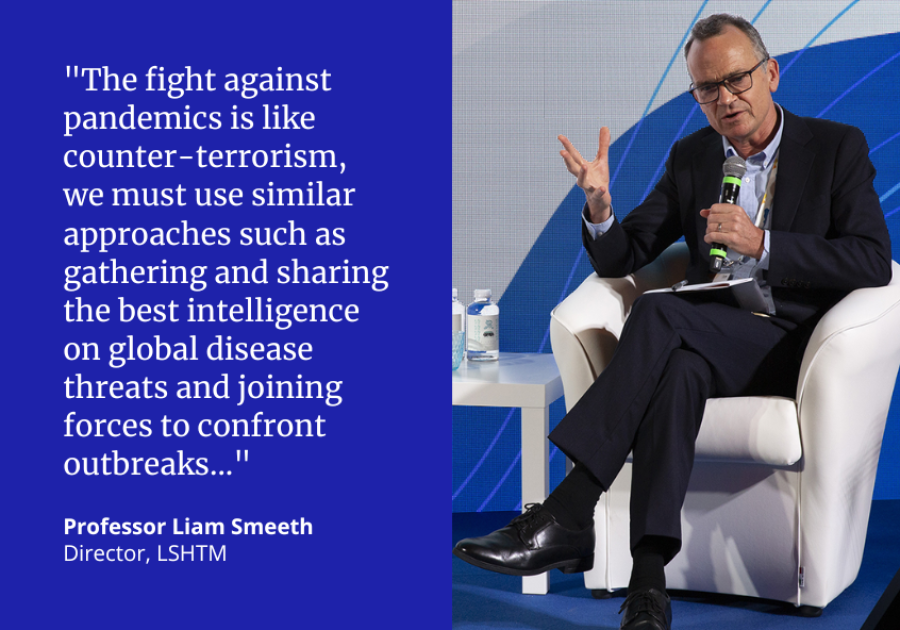Treat pandemic fight like counter-terrorism, LSHTM Director urges
18 July 2024 London School of Hygiene & Tropical Medicine London School of Hygiene & Tropical Medicine https://lshtm.ac.uk/themes/custom/lshtm/images/lshtm-logo-black.png
"The fight against pandemics is like counter-terrorism, we must use similar approaches such as gathering and sharing the best intelligence on global disease threats and joining forces to confront outbreaks...' Professor Liam Smeeth, Director, LSHTM
Professor Liam Smeeth, the Director of the London School of Hygiene & Tropical Medicine (LSHTM), has urged UK policymakers to learn from how other countries responded to COVID-19 and commit to a global response to future outbreaks.
He was speaking on the day the UK Covid-19 Inquiry publishes its first report, on the UK’s planning and preparation in the run up to COVID-19.
Professor Smeeth said: “The key lesson from the first UK Covid Inquiry report is that if the UK waits for the next pandemic to emerge it will be too late. The fight against pandemics is like counter-terrorism, we must use similar approaches such as gathering and sharing the best intelligence on global disease threats and joining forces to confront outbreaks before they become pandemics.
“Like terrorists, lethal viruses take no notice of national borders and can strike anywhere at any time. We have to work with global partners to combat this global threat: this means not just improving our planning, surveillance, and ability to respond in the UK, but supporting those on the frontline fighting outbreaks around the world.”
In May Professor Smeeth warned about misinformation attacks undermining negotiations towards a pandemic treaty at the World Health Assembly. The negotiations ended without a treaty although the World Health Organization has promised talks will continue.
Professor Smeeth said: “We need allies to fight the common enemy, the next pandemic, which is why a pandemic treaty is essential. The clock is ticking, we should find ways to collectively defend our whole planet and commit to sharing data, know-how and resources – such as surveillance tools, protective equipment and vaccines – on a global scale while we can.
“As we found during COVID-19, those spreading misinformation in pandemics only help to spread the virus, weakening our defences and putting the most vulnerable within society at greater risk. We must reject ‘fake news’ and polarisation and join together to protect our shared health or risk repeating the tragedies of COVID-19.”
During evidence given to the UK Covid-19 Inquiry LSHTM experts highlighted contract tracing, hospital surge capacity, health worker training, and disease surveillance, as some of the areas where the UK could learn from pandemic preparations in other countries.
Professor Smeeth said: “It’s not too late. We have a golden opportunity to learn lessons from how other countries responded to COVID-19 and enhance our global health security. We don’t know what the next dangerous outbreak will be, what we do know is that it's going to happen. We need to seize the moment to agree new ways of working and deeper collaboration so that we are better prepared for the next global disease threat when it arrives.”
LSHTM’s significant contributions to research into COVID-19 and public understanding of the pandemic were recognised with a Queen’s Anniversary Prize. Find out more about LSHTM’s COVID-19 response.
If you enjoyed this article and would like to build a career in global health, we offer a range of MSc programmes covering health and data, infectious and tropical diseases, population health, and public health and policy.
Available on campus or online, including flexible study that works around your work and home life, be part of a global community at the UK's no.1 public health university.